Michael Dietz
The AffectToolbox: Affect Analysis for Everyone
Feb 23, 2024



Abstract:In the field of affective computing, where research continually advances at a rapid pace, the demand for user-friendly tools has become increasingly apparent. In this paper, we present the AffectToolbox, a novel software system that aims to support researchers in developing affect-sensitive studies and prototypes. The proposed system addresses the challenges posed by existing frameworks, which often require profound programming knowledge and cater primarily to power-users or skilled developers. Aiming to facilitate ease of use, the AffectToolbox requires no programming knowledge and offers its functionality to reliably analyze the affective state of users through an accessible graphical user interface. The architecture encompasses a variety of models for emotion recognition on multiple affective channels and modalities, as well as an elaborate fusion system to merge multi-modal assessments into a unified result. The entire system is open-sourced and will be publicly available to ensure easy integration into more complex applications through a well-structured, Python-based code base - therefore marking a substantial contribution toward advancing affective computing research and fostering a more collaborative and inclusive environment within this interdisciplinary field.
MultiMediate'23: Engagement Estimation and Bodily Behaviour Recognition in Social Interactions
Aug 16, 2023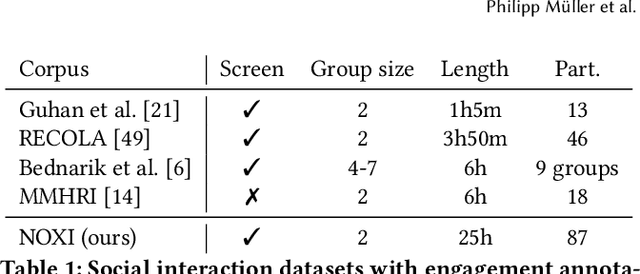
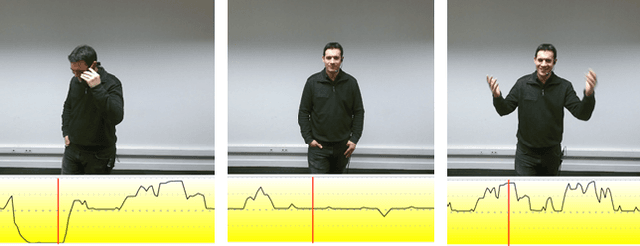
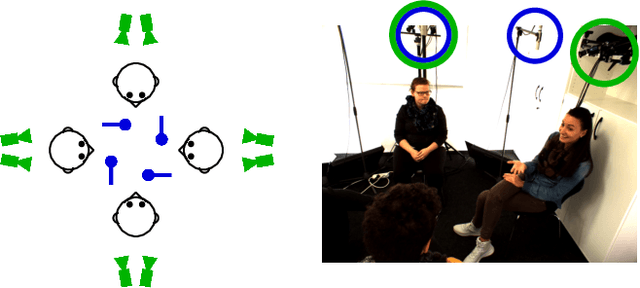
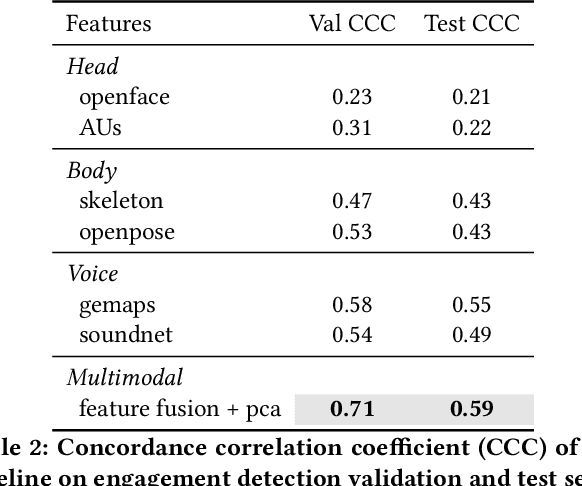
Abstract:Automatic analysis of human behaviour is a fundamental prerequisite for the creation of machines that can effectively interact with- and support humans in social interactions. In MultiMediate'23, we address two key human social behaviour analysis tasks for the first time in a controlled challenge: engagement estimation and bodily behaviour recognition in social interactions. This paper describes the MultiMediate'23 challenge and presents novel sets of annotations for both tasks. For engagement estimation we collected novel annotations on the NOvice eXpert Interaction (NOXI) database. For bodily behaviour recognition, we annotated test recordings of the MPIIGroupInteraction corpus with the BBSI annotation scheme. In addition, we present baseline results for both challenge tasks.
Designing a Mobile Social and Vocational Reintegration Assistant for Burn-out Outpatient Treatment
Dec 15, 2020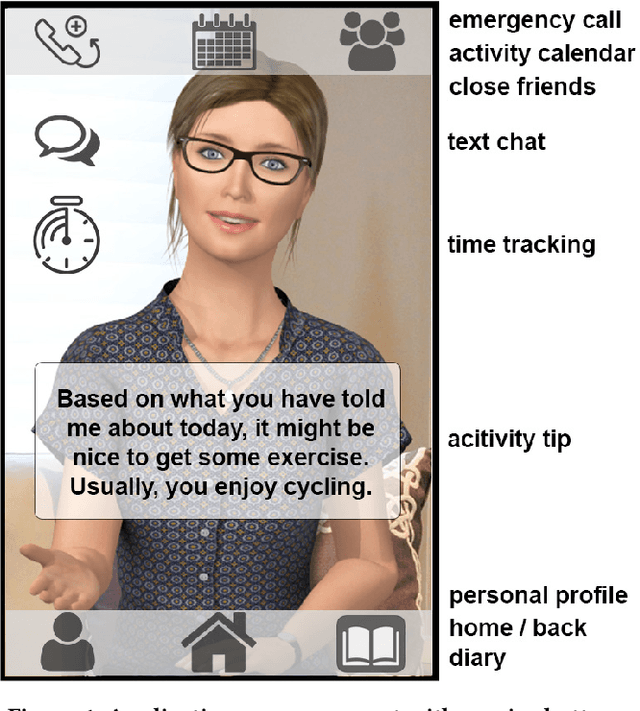
Abstract:Using Social Agents as health-care assistants or trainers is one focus area of IVA research. While their use as physical health-care agents is well established, their employment in the field of psychotherapeutic care comes with daunting challenges. This paper presents our mobile Social Agent EmmA in the role of a vocational reintegration assistant for burn-out outpatient treatment. We follow a typical participatory design approach including experts and patients in order to address requirements from both sides. Since the success of such treatments is related to a patients emotion regulation capabilities, we employ a real-time social signal interpretation together with a computational simulation of emotion regulation that influences the agent's social behavior as well as the situational selection of verbal treatment strategies. Overall, our interdisciplinary approach enables a novel integrative concept for Social Agents as assistants for burn-out patients.
 Add to Chrome
Add to Chrome Add to Firefox
Add to Firefox Add to Edge
Add to Edge